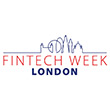How people-first branding is giving fintech start-ups the edge

Max Ottignon, Ragged Edge: people-first branding in fintech is a clear differentiator in a fiercely competitive market
Apple is about to have some company in the trillion dollar club, with Amazon shares continuing to hit all-time highs. So why haven’t more businesses cottoned on to the secret of Amazon’s success: its dedication to becoming “Earth’s most customer-centric company”?
Take the big hotel brands. If your flight gets in at 7am, why do you still have to wait until 3pm to check in? Or the energy companies that expect you to understand how many kilojoules you need to boil a kettle.
And then there are the mortgage providers. When making the biggest purchase of your life, surely you need the information presented in a way that you have half a chance of understanding.
Thankfully, the next generation of companies aren’t so inflexible. The most successful start-ups tend to take a leaf out of Amazon’s book and set out to solve problems the incumbents are too cumbersome to address.
Look beyond the technology
The fintech industry has exploded as brands look to apply this customer-first mindset to disrupt the established players. But persuading consumers to take a risk on a start-up when their money is on the line is no easy task. Even though banks have been among the least customer-focused businesses on earth, 39% of the UK population have never switched their accounts.
So a rock-solid product, with user experience hard-wired into its DNA, is just the start. Fintech start-ups need to earn trust. And that means being more than just customer-centric. It means becoming more human. It means being people-first.
Over the past couple of years, we’ve worked with a number of brands looking to do just that. Trussle was born from the frustrations around trying to arrange a mortgage. Salary Finance came from direct experience of seeing how the stress of being in debt impacted someone’s life. Cutting-edge technology helped both brands to disrupt their categories. But it was crucial for them to recognise that the technology was the means of delivering the service, not the service itself.
When defining Trussle’s brand, we noticed that other brands in the category were proudly talking about the tech they used. It’s easy to see how tempting this is when you’ve got some game-changing technology. But to us, the competition seemed to be missing what really mattered.
Trussle aims to provide a better, more empathetic service offering more personalised solutions. It wants to make the home ownership journey easier, cheaper and more enjoyable. It exists to put people first. So, we created a brand that’s warm and human. A brand that makes you feel before it makes you think. A brand that captures the rich human emotion at the heart of the home ownership journey.
Salary Finance offers a range of salary-linked benefits designed to get people out of debt and start saving. It makes this possible with some pretty impressive technology. But at its heart is a people-focused business, driven by a desire to improve the lives of employees. So, we created a people-first brand with a smile for a logo and a tag line that makes it explicit: “For people not numbers”.
Stay human as you scale up
One of the biggest challenges that fintech brands face is really living the people-first ethos, not just talking about it. You can’t just create a warm verbal and visual identity – the approach must go to the heart of everything you do. From the people you hire and your internal culture, right though to customer service and product development.
It’s easier when you’re starting out. Smaller companies are flexible enough to give customers all the time they need. But as they grow, it becomes increasingly hard to keep this going – and growth is fundamental for these brands. To succeed, you must make sure your technology is designed to enable you to live this approach at scale. People must continue to come first – and for some brands it can be easy to lose sight of that as the demands of constant growth take hold.
The other challenge is getting the right technical people on board. It’s tough enough to hire good engineers in what is already a very competitive field. Finding technical people who can balance process and efficiency with genuine empathy is not straightforward.
The future of people-first brands
People-first branding in the fintech sector is no flash in the pan. It’s a clear differentiator in a fiercely competitive market. Smarter start-ups recognise this and a growing number are using it to gain an edge on less agile, more established operators.
As ever, where the disruptors lead and succeed, the rest will eventually follow. This can only be a good thing for all players in the sector – and especially for their customers.
By Max Ottignon, co-founder, Ragged Edge











































